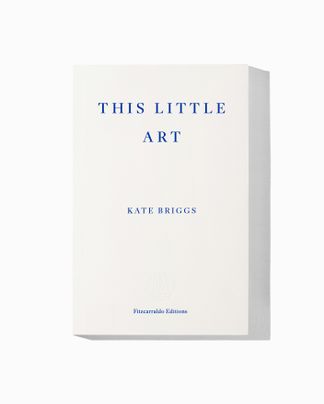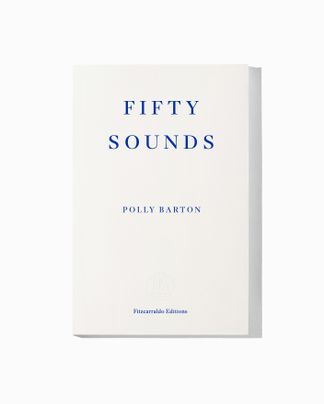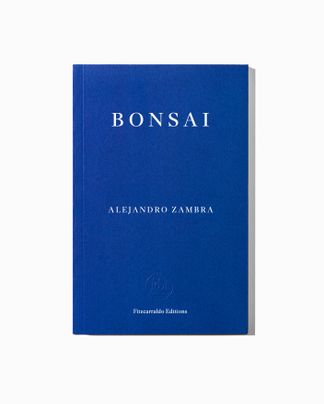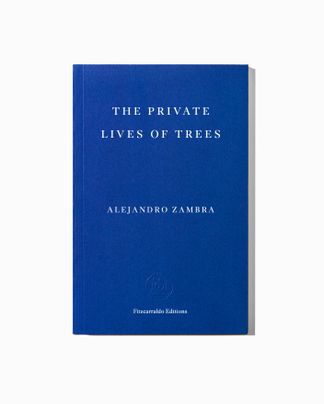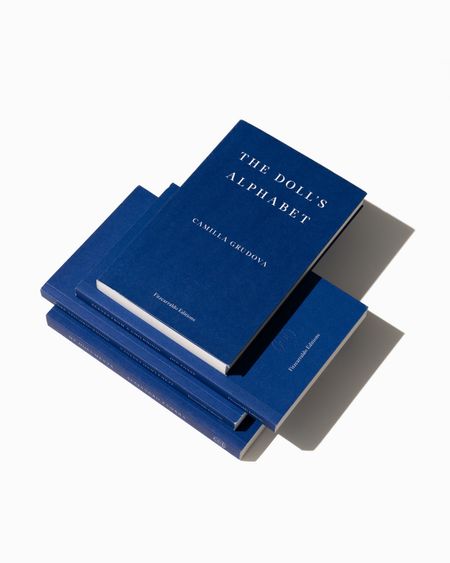My Documents is the latest work from Alejandro Zambra, the award-winning Chilean writer whose first novel was heralded as the dawn of a new era in Chilean literature. Whether chronicling the attempts of a migraine-afflicted writer to quit smoking or the loneliness of the call-centre worker, the life of a personal computer or the return of a mercurial godson, this collection of stories evokes the disenchantments of youth and the disillusions of maturity in a Chilean society still troubled by its recent past. Written with the author’s trademark irony and precision, humour and melancholy, My Documents is unflinchingly human and essential evidence of a sublimely talented writer working at the height of his powers.
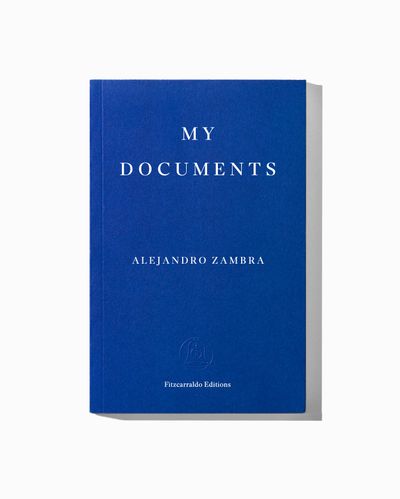
My Documents
Translated from Spanish by Megan McDowell
French paperback with flaps, 228 pages
Published 2 April 2015
My Documents
Translated from Spanish by Megan McDowell
MEMORIES OF A PERSONAL COMPUTER
It was bought on March 15, 2000, for four hundred thousand eighty pesos, payable in thirty-six monthly instalments. Max tried to fit the three boxes into the trunk of a taxi, but there wasn’t enough room, so he had to use string and a bungee cord to secure everything; it was a short trip, though, only ten blocks to Plaza Italia. Once in the apartment, Max installed the heavy CPU as best he could under the dining room table, arranged the cables in a more or less harmonic way, and played like a kid with the bubble wrap it had been packaged in. Before solemnly starting up the system, he took a moment to look at everything deliberately, fascinated: the keyboard seemed impeccable to him, the monitor, perfect, and he even thought that the mouse and speakers were, somehow, pleasant.
He was twenty-three years old, it was the first computer he’d owned, and he didn’t know exactly what he wanted it for, considering he barely knew how to turn it on and open the word processor. But it was necessary to have a computer, everyone said so, even his mother, who’d promised to help him with the payments. He worked as an assistant at the university and he thought that maybe he could type up the reading tests, or transcribe his old notes, written by hand or laboriously typed on an old Olympia typewriter, on which he had also written all his undergraduate papers, provoking the laughter or admiration of his classmates, who were, by then, all using computers.
The first thing he did was transcribe the poems he had written over the past several years – short texts, elliptical and incidental, which were considered good by no one, but weren’t considered bad either. Something happened, though, when he saw those words on the screen, words that had made so much sense in his notebooks: he began to doubt the verses, and he let himself get carried along by a different rhythm – maybe one that was more visual than musical. But instead of feeling like the change of style was an experiment, he pulled back, got frustrated, and very often just deleted the poems and started over again, or wasted time changing fonts or moving the pointer of the mouse from one side of the screen to the other, in straight lines, in diagonals, in circles. He didn’t give up his notebooks or his pen, though, and at the first slip-up, he splattered ink all over the keyboard, which also had to endure the threatening presence of countless cups of coffee and a continuous rain of ash, because Max almost never made it to the ashtray, and he smoked a lot while he wrote, or, rather, he wrote a little while he smoked a lot. Years later the accumulated grime would lead to the loss of the vowel a and the consonant t, but that’s getting ahead of things, and it would be best, for now, to respect the proper sequence of events.
The computer brought about a new kind of solitude. Max didn’t watch the news anymore, or waste any time playing the guitar or drawing: when he came back from the university he would immediately turn on the computer and start working or exploring the machine’s possibilities. Soon he discovered very simple programmes whose capabilities struck him as astonishing, such as the voice recorder, which he used with a scrawny little microphone that he bought at Casa Royal, or his My Music folder, which now hosted all twenty-four of the compact discs he owned. While he listened to those songs, amazed at how a ballad by Roberto Carlos could give way to the Sex Pistols, he continued working on his poems, which he never considered finished. Sometimes,lacking a heater, Max fought off the cold by kneeling and embracing the CPU, whose low hum merged with the refrigerator’s snore and the voices and horns that filtered in from outside. He wasn’t interested in the Internet, he distrusted it, and though he had set up an email account at his friend’s mother’s house, he refused to connect to the Web, or to insert those diskettes that were so dangerous: potential virus-carriers, he’d been told, with the power to ruin everything.
The few women who came to his apartment during those months all left before dawn, without even showering or eating breakfast, and they didn’t come back. But at the beginning of summer there was one who did stay to sleep, and then also stayed for breakfast: Claudia. And she came back – once, twice, many times. One morning, emerging from the shower, Claudia stopped in front of the darkened screen, as if looking at her reflection, searching for incipient wrinkles or some other stray mark or blemish. Her face was dark, her lips more thin than full, her neck long, her eyes dark green, almondshaped. Her hair hung down to her wet shoulders: the tips were like needles resting above her bones. The towel that she herself had brought over to Max’s house could wrap around her body twice. Weeks later, Claudia also brought over a mirror for the bathroom, but she still went on looking at herself in the screen, though it was difficult to find, in the dark reflection, anything more than the outline of her face.
After sex, Max tended to fall asleep, but Claudia would go to the computer and play rapid games of solitaire, or Minesweeper, or chess (at the intermediate level). Sometimes he would wake up and go sit next to her, giving her advice on the game or caressing her hair and back. Claudia gripped the mouse tightly in her right hand, like someone was going to snatch it from her, and she clenched her teeth and widened her eyes exaggeratedly – although every once in a while she let out a nervous giggle that seemed to give him permission to go on caressing her. Maybe she played better with him beside her. When the game ended she’d sit on Max’s lap and they would begin a long, slow screw. The strange lights of the screensaver drew fickle lines on her shoulders, on her back, her buttocks, on Claudia’s soft thighs. They drank coffee in bed, but sometimes they made space at the table so they could sit down to eat breakfast ‘the way God intended,’ as she would say. Max would unplug the keyboard and monitor and leave them on the floor, exposing them to treading feet and minuscule breadcrumbs, and so, every once in a while, Claudia had to use glass cleaner and a kitchen rag to clean them. But the computer’s conduct was, during this period, exemplary: Windows always started successfully.
(…)
Shortlisted for the 2015 Frank O’Connor International Short Story Prize
‘People kept mentioning his name, but I was slow to encounter the Chilean writer Alejandro Zambra. I hadn’t read anything by him before opening his new story collection, My Documents … My Documents is the fourth book by Alejandro Zambra to be translated into English (this one very ably by Megan McDowell). All of them are very short and strikingly original, and display a wry self-consciousness about the obligations, difficulties, and pleasures of writing fiction…. In his new book, Zambra returns to the twin sources of his talent – to his storytelling vitality, that living tree which blossoms often in these pages, and to his unsparing examination of recent Chilean history. These come together magnificently.’
‘[An] excellent collection … rich and thought-provoking … If you are going to read Alejandro Zambra, which you should, don’t just read My Documents, read everything he’s done.’
— Chris Power, Guardian
‘These stories are graceful, grave, comical, disabused. I guess what I mean is: My Documents represents a new form. When I think about Alejandro Zambra, I feel happy for the future of fiction.’
— Adam Thirlwell, author of Lurid and Cute
‘Alejandro Zambra’s My Documents is also his best: an eclectic, disconcerting, at times harrowing read. His voice is unique, honest and raw, and there is poetry on every page. Zambra’s fiction doubles as a kind of personal history, full of anguish, humour and verve. A truly beautiful book.’
— Daniel Alarcón, author of At Night We Walk in Circles
‘Zambra is the author of small classics – short in length, but enormous in every other way. My Documents elevates him to a entirely new level.’
— Valeria Luiselli, author of Faces in the Crowd
‘I read all of Alejandro Zambra’s novels back-to-back because they were such good company. His books are like a phone call in the middle of the night from an old friend, and afterward, I missed the charming and funny voice on the other end, with its strange and beautiful stories.’
— Nicole Krauss, author of Great House
‘Ways of Going Home elevates Zambra to the status of living writers we “simply must read”, like Denis Johnson, Lydia Davis, and Mary Gaitskill. His voic is as natural and intimate as Roberto Bolaño’s, an obvious but healthy influence, and his subjects – love, memory, death, and guilt – are as big as he can find.’
— Clancy Martin, author of Love and Lies
‘The last “truly great book” I read has to be Alejandro Zambra’s Bonsai. A subtle, eerie, ultimately wrenching account of failed young love in Chile among the kind of smartypant set who pillow-talk about the importance of Proust … A total knockout.’
— Junot Díaz, author of The Brief and Wondrous Life of Oscar Wao
Alejandro Zambra was born in Santiago, Chile, in 1975. He is the author of Chilean Poet, Multiple Choice, Not to Read, My Documents, Ways of Going Home, The Private Lives of Trees and Bonsai. In Chile, among other honours, he has won the National Book Council Award for best novel three times. In English, he has won the English PEN Award and the PEN/O. Henry Prize and was a finalist for the Frank O’Connor International Short Story Award. In 2023 he won the Manuel Rojas Ibero-American Prize for the totality of his oeuvre. He has also won the Prince Claus Award (Holland) and received a Cullman Centre Fellowship from the New York Public Library. His books have been translated into twenty languages and his stories have been published in the New Yorker, New York Times Magazine, Paris Review, Granta, McSweeney’s Quarterly and Harper’s, among other publications. He has taught creative writing and Hispanic literature for fifteen years and currently lives in Mexico City.
Megan McDowell has translated many modern and contemporary South American authors, including Alejandro Zambra, Arturo Fontaine, Carlos Busqued, Álvaro Bisama and Juan Emar. Her translations have been published in the New Yorker, McSweeney’s, Words Without Borders, Mandorla, and Vice, among others. She lives in Santiago, Chile.

